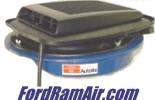|
Author
|
Topic: GAS = COOLING ?
|
johnmustang
Gearhead Posts: 4046
From: Vancouver Island , British Columbia , Canada
Registered: Nov 2001
|
 posted 06-05-2003 09:49 AM
posted 06-05-2003 09:49 AM
   
Does the grade of gas make any difference to how hot or cool you engine runs ? I was running chevron high test premium and the car ran cool, then went to mid-grade and the car warmed up a little bit, then went to reg-unleaded and the car seems to run even hotter. Is this just a coincidence or does the grade of gas make a difference ? My timing is at 17 initial and 38 all in at 2900 - 3000 RPMs.JOHN  ------------------
65 2+2 FASTBACK
87 TAURUS WAGON
98 F150 XLT TRITON V8 4.6, 4 WHEEL DRIVE
Member:Vancouver Island Mustang Association
M&M #1710
MyPhotoPage
MY TRUCK
IP: Logged |
indyphil
Gearhead Posts: 566
From: Lafayette, IN, USA
Registered: Jul 2002
|
 posted 06-05-2003 12:15 PM
posted 06-05-2003 12:15 PM
   
I dont think it should but then some companies are using ethanol as an additive to make the gas cheaper. Ethanol additives make the car run leaner with the same jetting (but not by much). I think the cheaper gas may have the ethanol but Im not a gas expert. I think that may have a slight effect? I would say its probably coincidence. Have the ambient air temps changed at all while you are making these comparisons?------------------
'68 coupe 289 C code
66 heads, edel 600cfm carb, performer intake, dual exhaust
IP: Logged |
johnmustang
Gearhead Posts: 4046
From: Vancouver Island , British Columbia , Canada
Registered: Nov 2001
|
 posted 06-05-2003 12:31 PM
posted 06-05-2003 12:31 PM
   
quote:
Originally posted by indyphil:
I dont think it should but then some companies are using ethanol as an additive to make the gas cheaper. Ethanol additives make the car run leaner with the same jetting (but not by much). I think the cheaper gas may have the ethanol but Im not a gas expert. I think that may have a slight effect? I would say its probably coincidence. Have the ambient air temps changed at all while you are making these comparisons?
Air temperature has been about the same while using the different grades of gas. The 3 row rad is clear, 6 bladed flex fan, shroud, 160 stat, 60% water 40% anti freeze and water wetter. Now when I am driving on the highway at 60 MPH the car heats up not boiling over but pretty close. When I drive at up to 50 MPH it stays cool, starts to heat up again when at a light. Bottom rad hose is good and not collapsing and just had the motor professionally flushed out. I just can not get a handle on this PITA cooling problem 
JOHN 
------------------
65 2+2 FASTBACK
87 TAURUS WAGON
98 F150 XLT TRITON V8 4.6, 4 WHEEL DRIVE
Member:Vancouver Island Mustang Association
M&M #1710
MyPhotoPage
MY TRUCK
IP: Logged |
JCQuinn@work
Gearhead Posts: 383
From: Lakewood, CO, USA
Registered: Jun 2001
|
 posted 06-05-2003 01:04 PM
posted 06-05-2003 01:04 PM
   
Two thoughts on your gas grade vrs temp.Pre-ignition (pinging) will make your engine run hotter. You can't always hear pinging. John
IP: Logged |
johnmustang
Gearhead Posts: 4046
From: Vancouver Island , British Columbia , Canada
Registered: Nov 2001
|
 posted 06-05-2003 01:54 PM
posted 06-05-2003 01:54 PM
   
quote:
Originally posted by JCQuinn@work:
Two thoughts on your gas grade vrs temp.Pre-ignition (pinging) will make your engine run hotter. You can't always hear pinging. John
Will that go back to the grade of gas that I am using? lower octane gas will cause pinging and higher octane will eliminate it. I can not hear any pinging at all with any of the grades of gas, but with the exhaust system and mufflers I have, plus being 85% deaf in my right ear I can not hear much of anything. I do not really want to bump my initial timing up any more than what it is now at 17. When this tank of gas is done I will put in the 94 octane and see what that does. Do you or anybody else have any other suggestions? JOHN  ------------------
65 2+2 FASTBACK
87 TAURUS WAGON
98 F150 XLT TRITON V8 4.6, 4 WHEEL DRIVE
Member:Vancouver Island Mustang Association
M&M #1710
MyPhotoPage
MY TRUCK
IP: Logged |
JCQuinn@work
Gearhead Posts: 383
From: Lakewood, CO, USA
Registered: Jun 2001
|
 posted 06-05-2003 02:40 PM
posted 06-05-2003 02:40 PM
   
The reason there are different grades of gas is to eliminate pre-ignition. Generally you should use the lowest grade that you can run without pre-ignition. Timing also affects pre-ignition, if your timing is set for the best power then adjust the grade of gas. If you want to run the cheaper gas, experiment with the timing.Way back in pre-historic times CONOCO offered a super premium gas that was higher octane that any other gas available in my area. It was the only gas I could run in my hot rod of that time because the compression was so high. The lower grades all created audible pinging when the engine was under load. Now if you want to use high compression you get to buy $5.00/gallon race gas. John
IP: Logged |
indyphil
Gearhead Posts: 566
From: Lafayette, IN, USA
Registered: Jul 2002
|
 posted 06-05-2003 02:43 PM
posted 06-05-2003 02:43 PM
   
What he is saying is that if it is pinging on the cheaper gas that might explain the extra heat, so in this case perhaps retarding timing slightly might help REDUCE temps by reducing the pinging? 17 initial is a lot of timing. Lower octane (cheaper) gas will be more prone to pinging thats the whole point of higher octane. Octane rating is not an indication of how much power is in the fuel, its an indication of how easily the gas will pre-ignite or detonate. Higher octane allows higher compression ratios and more advanced timing without detonation. ------------------
'68 coupe 289 C code
66 heads, edel 600cfm carb, performer intake, dual exhaust
IP: Logged |
johnmustang
Gearhead Posts: 4046
From: Vancouver Island , British Columbia , Canada
Registered: Nov 2001
|
 posted 06-05-2003 02:51 PM
posted 06-05-2003 02:51 PM
   
quote:
Originally posted by indyphil:
What he is saying is that if it is pinging on the cheaper gas that might explain the extra heat, so in this case perhaps retarding timing slightly might help REDUCE temps by reducing the pinging? 17 initial is a lot of timing. Lower octane (cheaper) gas will be more prone to pinging thats the whole point of higher octane. Octane rating is not an indication of how much power is in the fuel, its an indication of how easily the gas will pre-ignite or detonate. Higher octane allows higher compression ratios and more advanced timing without detonation.
Should I drop the timing back to about 13 - 14 ? JOHN  ------------------
65 2+2 FASTBACK
87 TAURUS WAGON
98 F150 XLT TRITON V8 4.6, 4 WHEEL DRIVE
Member:Vancouver Island Mustang Association
M&M #1710
MyPhotoPage
MY TRUCK
IP: Logged |
Ryan Wilke
Gearhead Posts: 1324
From: Stanton, Michigan 49707
Registered: Oct 2000
|
 posted 06-05-2003 04:54 PM
posted 06-05-2003 04:54 PM
   
quote:
Originally posted by johnmustang:
Should I drop the timing back to about 13 - 14 ?
Yep; maybe even back to 12* initially....
Then take someone with good hearing on a ride with ya to listen for any ping. 
Ryan 
IP: Logged |
V8 Thumper
Gearhead Posts: 3174
From: Orange, Ca. United States of America
Registered: Dec 2001
|
 posted 06-05-2003 06:50 PM
posted 06-05-2003 06:50 PM
   
The higher the octane rating, the more controlled the combustion cycle will be (really simplified explanation). With more octane, the combustion event will be more gradual. This is a fine line; heat is cylinder pressure which is horsepower. Too much (and/or un-controled) heat is potentially disasterous  If I were you John, I'd run the good stuff through that motor. Early 289 heads with flat top pistons make good compression  and were designed for 100+ octane in the first place. and were designed for 100+ octane in the first place. 38* total time is too much IMO. I'd back it down to 34* at the most  ------------------
1965 GT coupe, 333ci aluminum headed/solid cammed stroker, four speed, 3.70:1 9" All Blue Oval, no blue bottle
http://mustangsandmore.50megs.com/V8Thumper.html
IP: Logged |













 Mustangsandmore Forums
Mustangsandmore Forums

 '64 1/2 to '73 -- The Classic Mustang
'64 1/2 to '73 -- The Classic Mustang

 GAS = COOLING ?
GAS = COOLING ?


